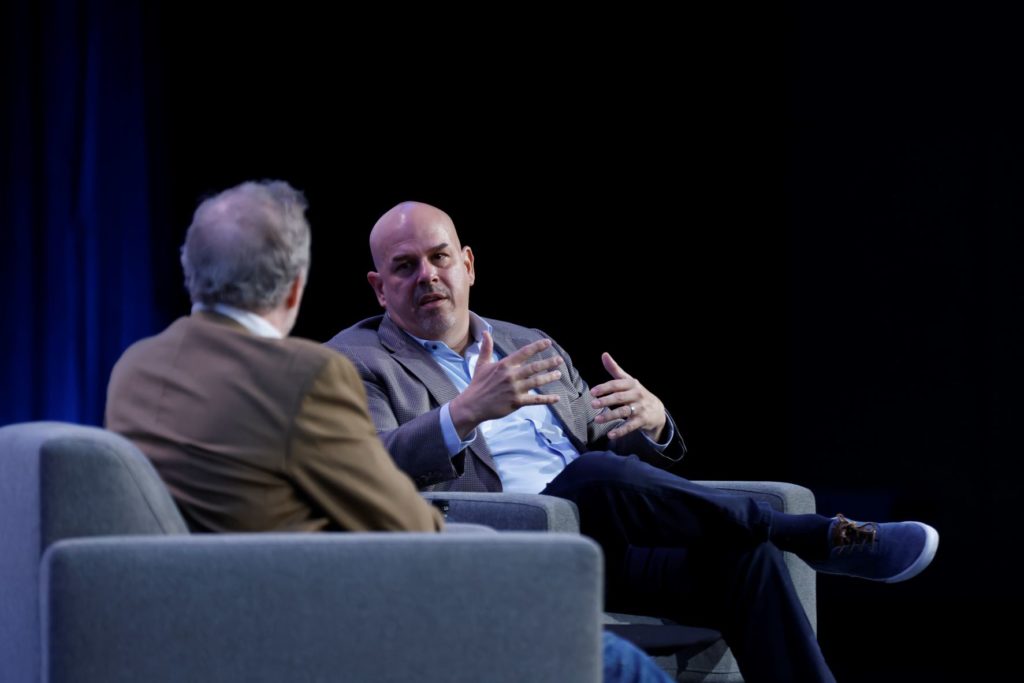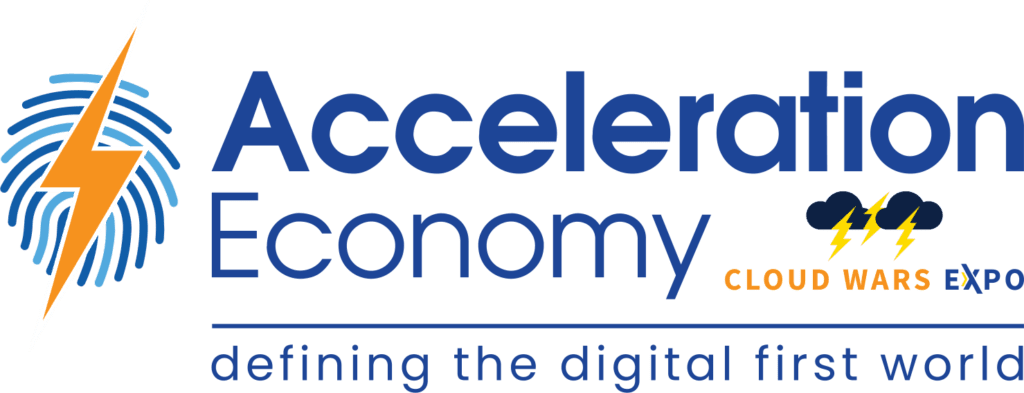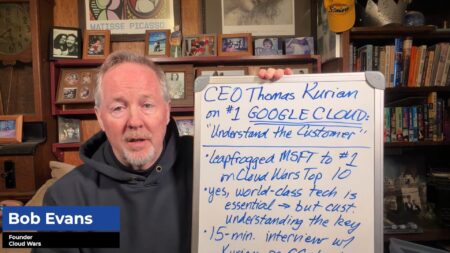On the verge of becoming the world’s hottest major cloud provider, Oracle is pushing its broad portfolio of industry-specific solutions front and center as its plans to revolutionize the healthcare industry become a model for how Larry Ellison’s company will target other vertical markets.
While Oracle Industries Executive Vice-President Mike Sicilia did not use those exact words during our keynote conversation at Cloud Wars Expo, that was surely a core theme within Sicilia’s comments as he laid out the company’s overall industries strategy as well as some specific plans for Cerner’s role in healthcare.
In a chat I had with Sicilia before he took the stage at Cloud Wars Expo, Sicilia said that the stunning changes that have transformed the business world over the past 28 months “will never go back” and that “industries are evolving to serve new expectations.”
As a result, Sicilia told me, “This puts industry technology at the epicenter of the tech battleground.”
Think about that for a moment: the head of the industries business at Oracle, which a few weeks ago moved up to the #2 spot on my Industry Cloud Top 10 list, is clearly stating that these purpose-built and industry-specific solutions have moved from being interesting but niche-y tools with limited demand to taking a leading role in what is without question the greatest growth market the world has ever known.
In fact, the impact of what I’ve called the “industry-cloud phenomenon” is so profound that Sicilia, during his keynote, said that Oracle has begun embedding some purpose-built industry technology into its horizontal applications. That means that the industry-cloud phenomenon is extending far beyond vertical-market tools and into mainstream applications as well.
And this market-shaking development has all come together in less than two years!
To me, it makes perfect sense because, as we’ve all learned all too well, those past two years were not just any old ordinary two years. We saw telemedicine go from a pipe-dream to an indispensable reality. We saw curbside pickup go from a highly specialized potential new revenue stream to a ubiquitous must-have service. We’ve seen digital commerce shift from a specialized capability to the dominant approach. We’ve seen industry boundaries crumble as new technology allows companies to defy those siloes and instead nimbly follow the money by following the customers across formerly sacrosanct lines. And we’ve seen profound customer-experience innovation from companies that have been truly willing to put the customer at the center of everything.
As Sicilia put it, after noting that the lack of modern technology forces some doctors to spend twice as much time on paperwork and documentation as they spend with patients, “These are crazy things. Somebody has to fix it; somebody has to make it better. We see it not just as a business but as a moral obligation.”
For a more detailed overview of Sicilia’s comments during his Cloud Wars Expo keynote, please see this excellent Acceleration Economy article from my colleague Tom Smith: Oracle’s Mike Sicilia Keynote, Fireside Chats, and Cloud Industry Day: Top Takeaways.
That’s pretty powerful talk — we don’t hear too many references to “moral obligations” among the drivers for business transformation and cloud technology. But in Oracle’s case, Ellison is using the Cerner acquisition to radically overhaul the healthcare business — which is, don’t forget, the largest vertical market in the world — in what Ellison himself has called “a mission.”
In mid-March, on Oracle’s fiscal-Q3 earnings call, a financial analyst asked Ellison if he thought the Cerner deal could drive big growth opportunities for Oracle. And here, from my March 14 article Larry Ellison: Predator, Disruptor, Dreamer, is what Ellison said in reply:
“I think we can do it and I think we’re on our way to doing it,” Ellison replied. “And if we do, then yes, the benefits to Oracle are great.
“But actually, this is at least for me personally — this is a mission. The benefits to every patient in the world are going to be enormous. So we need to do this.
“Because the pandemic has shown a variety of weaknesses in our healthcare systems. And now we have the technology to address those weaknesses, and that’s what we’re going to do.”
So, at least in the healthcare space, this opportunity for Oracle is “a mission” for its founder and chairman, and that mindset from Ellison no doubt directly inspired Sicilia to cite the “moral obligation” felt by Oracle to “fix…these crazy things” like doctors being tormented with 2 hours of paperwork for every 1 hour of patient care.
If Sicilia and Oracle can extend some of that same passion across all of the industries Oracle serves, then there is indeed a very good chance that we’ll continue to see extraordinary changes for the better across the business world as the cloud continues to display its astonishing transformative capabilities in the greatest growth market the world has ever known.









